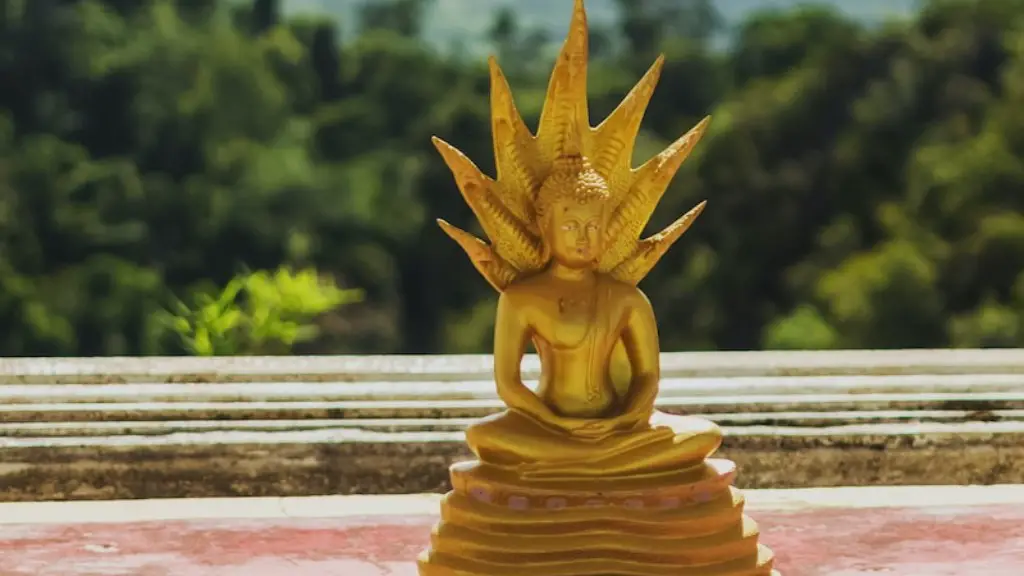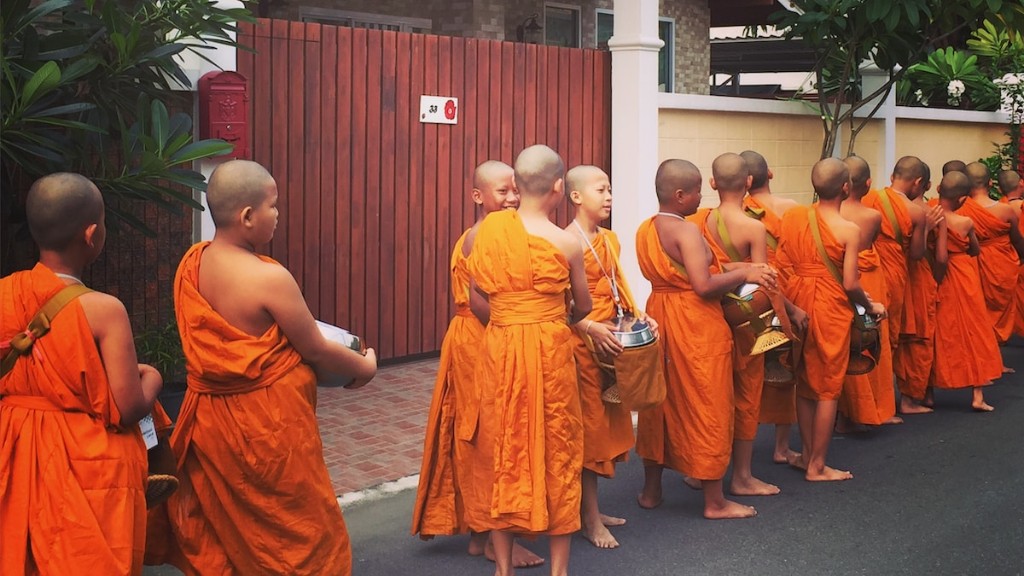The Pali Canon, the earliest Buddhist scriptures, present the Buddha’s teaching on the nature of craving (tanha) and its role in suffering (dukkha). The Buddha says that all suffering arises from craving, and that the only way to end suffering is to let go of craving.
In Buddhism, craving is not just a desire for things, but a deep-seated attitude of dissatisfaction with life as it is. The Buddha says that Craving is the cause of all suffering because it leads us to cling to things that are impermanent and ultimately dissatisfying.
The only way to end suffering is to let go of craving. This is not easy, but it is possible through the practice of meditation and mindfulness. When we develop a practice of mindfulness, we become more aware of our thoughts and feelings, and we see more clearly how we create suffering for ourselves through our cravings.
In Buddhism, craving is an intense desire for something that is difficult to obtain or maintain. It is often accompanied by attachment and aversion. Craving can lead to suffering if it is not satisfied.
What are the three cravings in Buddhism?
Taṇhā is a key concept in Buddhist teachings. It is typically translated as craving, and is of three types: kāma-taṇhā (craving for sensual pleasures), bhava-taṇhā (craving for existence), and vibhava-taṇhā (craving for non-existence).
Buddha taught that taṇhā is the cause of suffering, and that the only way to end suffering is to end taṇhā. Therefore, taṇhā is an important concept to understand if you want to achieve liberation from suffering.
In Buddhism, desire and ignorance are considered to be the root causes of suffering. By desire, Buddhists refer to craving pleasure, material goods, and immortality, all of which are wants that can never be satisfied. As a result, desiring them can only bring suffering.
How does craving lead to suffering
It’s important to have a balance in life between what we want and what we need. If we get too caught up in our desires, it can lead to physical suffering. However, if we don’t want anything at all, we would never be able to achieve anything.
The difference between desire and craving is subtle, but true. Desire is an expression of longing. Craving is an expression of neediness.
How do Buddhists overcome cravings?
The Noble Eightfold Path is the fourth of the Four Noble Truths in Buddhism. It is the way to end suffering and break free from the cycle of rebirth. To follow the path, a Buddhist must live a moral life, be mindful of their thoughts and actions, and develop wisdom.
Buddhists believe that food should be prepared as a spiritual exercise with attention to balance, harmony, and delicacy. Conscious eating is followed among all Buddhists. Buddha advised monks to avoid eating 10 kinds of meat for self-respect and protection: humans, elephants, horses, dogs, snakes, lions, tigers, boars and hyenas.
Is a craving a thought or a feeling?
Craving is an intense emotional experience that takes over your body and produces a unique motivator of behavior – wanting and seeking a drug. When you are craving a drug, you may feel an overwhelming urge to use the drug, and you may feel like you can’t control your urge to use. Craving is a normal and common experience for people who use drugs, and it can be a powerful motivator of drug use.
A craving is an intense desire for something really particular. When you have a craving, you can’t think about anything else until you satisfy it. Cravings can be for food, cigarettes, alcohol, drugs, or anything else that you really want.
What are the unforgivable sins in Buddhism
There are five major sins in Buddhism: killing one’s mother, killing one’s father, killing an arhat (saint), injuring the body of a buddha, and causing a division in the Buddhist community. These are all seen as serious offenses that will lead to negative karma and suffering in the future.
There are many reasons why someone might experience food cravings. Here are six of the most common causes:
1. Stress, anxiety, or sadness. Chronic stress increases the level of the hormone cortisol, which increases appetite – especially for sweet carbs.
2. Tiredness. When you are tired, your body is trying to find ways to increase energy levels. One way to do this is to consume more calories.
3. Low blood sugar. If you have recently eaten, your blood sugar levels may drop, causing you to crave sugary foods.
4. Hormonal imbalance. Changes in hormones can cause cravings for specific types of foods. For example, pregnant women may crave fatty foods due to an increase in the hormone progesterone.
5. Dehydration. Sometimes, when you feel hungry, your body is actually trying to tell you that you are thirsty. Make sure to drink plenty of water throughout the day to avoid dehydration.
6. Nutrient imbalance. If you are lacking certain nutrients, your body will try to compensate by craving foods that contain those nutrients. For example, if you are not getting enough iron, you may crave foods that are high in iron, such as red meat.
What are the four most powerful triggers of cravings?
If you are trying to remain sober, it is important to be aware of triggers. Triggers are stimuli that serve as a reminder about past substance use. This can be stressful or uncomfortable situations where, in the past, you may have turned to substances to feel more relaxed. Being around people that continue to use substances can also be a trigger. Accessibility to contacts who can get alcohol or other drugs for you can be another trigger. If you are aware of your triggers, you can be better prepared to face them and not give in to temptation.
This is an interesting finding that suggests that food cravings may be similar to drug addiction in terms of the brain regions involved. This may help to explain why some people find it difficult to control their cravings and why certain foods are more addictive than others.
Is craving a need or want
Crave can be used to describe both physical and emotional needs. It is often used to describe a strong desire for something, and is similar to words like covet, desire, want, and wish.
Anxiety is not just a feeling of nervousness or unease, but is actually caused by the stimulation of adrenaline and norepinephrine. This can lead to a physical sensation of craving and the desire to focus your attention on that specific person.
What it means to crave someone?
I have a strong desire for knowledge and understanding. I want to feel confident and capable in my ability to reason and think critically.
Exercise, talking it out, mediation, and expression your feeling are all great ways to help you get through a bout of cravings. Eating something can also help, but make sure it is something healthy that will not make your cravings worse.
How do you override cravings
If you’re trying to beat food cravings, here are a few tips that may help:
1. Eat small and frequent meals to prevent spikes in hunger.
2. Consume plenty of fiber.
3. Don’t keep trigger foods in the house.
4. Keep yourself busy.
5. If possible, use the DVR on your television.
6. Create non-food rewards for eating healthy.
7. When in doubt, give in to a healthy snack.
There are a few things that may help with sugar cravings. Drinking a glass of water can help as some people say that dehydration can cause cravings. Eating a piece of fruit may also help satisfy sugar cravings for some people. Avoiding artificial sweeteners can also be helpful. Eating more protein may also help. Talking to a friend can also be helpful. Sleeping well and avoiding excess stress can also help. Avoiding certain triggers can also be helpful.
Conclusion
Buddhism teaches that craving is the cause of suffering. Suffering arises when we are attached to things that we desire. We can be attached to material things, like possessions, or to things that are temporary, like our own body orway of life. The Buddha taught that the only way to end suffering is to let go of our attachment to these things.
From a Buddhist perspective, craving is the root of all suffering. It is the desire for things that we cannot have, or for things that we have to let go of. This desire leads to attachment, which leads to suffering. Therefore, the practice of Buddhism is about learning to let go of our cravings and desires. This can be a difficult process, but it is ultimately liberating and can lead to true happiness.

